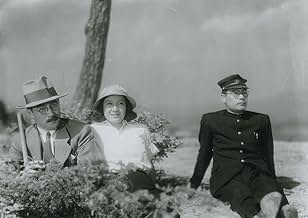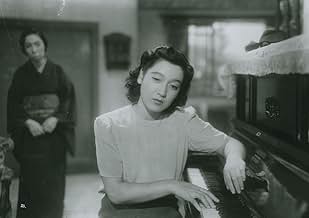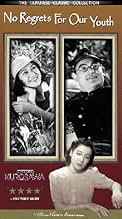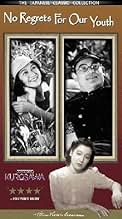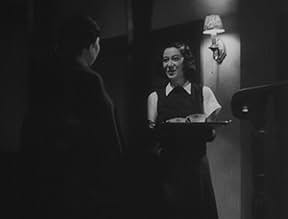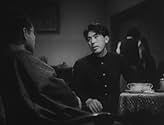Agrega una trama en tu idiomaThe daughter of a politically disgraced university professor struggles to find a place for herself in love and life, in the uncertain world of Japan leading into WWII.The daughter of a politically disgraced university professor struggles to find a place for herself in love and life, in the uncertain world of Japan leading into WWII.The daughter of a politically disgraced university professor struggles to find a place for herself in love and life, in the uncertain world of Japan leading into WWII.
Argumento
¿Sabías que…?
- TriviaFilming in 1946, just after the war, many of the cast and crew were living very poor lives, going hungry quite often. One of the actors recalled a personal story of his stomach growling during filming, causing the scene to have to be shot again.
- Citas
Title Card: After the Manchurian Incident the militarists attempted to unify domestic opinions in order to realize their ambition to invade Asia. They denounced as "Red" any ideology that might hinder their policy. Professors and students fought the suppression. The Kyoto University Disturbance was one of their struggles for freedom.
- ConexionesFeatured in Century of Cinema: Nihon eiga no hyaku nen (1995)
The title of the movie comes from Noge's statement to Yukie halfway through the film - she does not know he has continued his involvement in the anti-war movement, although he has spent time in prison and China for protesting. He tells her he has no regrets for any of his actions. Yukie doesn't quite understand until he is arrested and eventually killed for spying. Yukie has the option of returning home to her parents, but instead she finds Noge's parents and moves in with them. There she suffers hardship, sickness, and the humiliation of being known as an anti-war collaborator. The central question of the movie is why did she do this? Was she trying to "hold on" to a lost lover? Did she feel guilt over not having been more active in the anti-war movement? Was this her penance for a mis-spent youth? Even more perplexing is the way she rebukes Isokawa at the end of the film by refusing to show him Noge's grave - Isokawa had supported Japanese involvement in the war.
Perhaps the film is about the mind-state of Japan after losing the war - those who opposed the war, or who struggled through hardship to live normal lives, should value their actions in spite of the consequences. Those who supported the war deserve scorn and share in the responsibility of bloodshed.
- jerryhatrick
- 29 abr 2000
- Enlace permanente
Selecciones populares
- How long is No Regrets for Our Youth?Con tecnología de Alexa
Detalles
- Tiempo de ejecución1 hora 50 minutos
- Color
- Mezcla de sonido
- Relación de aspecto
- 1.37 : 1
Contribuir a esta página


